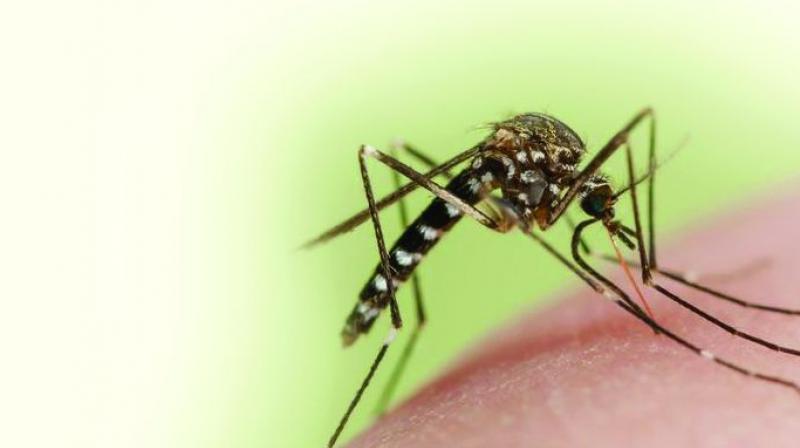Viral fevers on the rise!
Symptoms usually last for 2-7 days, following an incubation period of 4-10 days after being bitten by an infected mosquito.

Dengue, influenza and chikungunya are serious viral infections that are usually accompanied by severe symptoms. And since the symptoms of all three are so similar, it can be quite difficult, if not impossible, to make a conclusive identification without laboratory testing, says Dr J. Anish Anand, consultant internal medicine, Apollo Hospitals.
With scores of patients in the city suffering from dengue, influenza and chikungunya, timely intervention, lab tests and treatment are a must to tackle this viral epidemic.
DENGUE
Dengue is a mosquito-borne viral infection causing a severe flu-like illness, sometimes leading to severe complications. The dengue virus (DEN) comprises four distinct serotypes (DEN-1, DEN-2, DEN-3 and DEN-4) which belong to the genus Flavivirus, family Flaviviridae. Once infected, humans become the main carriers and multipliers of the virus, serving as a source of the virus for uninfected mosquitoes. The virus circulates in the blood of an infected person for 2-7 days, at approximately the same time that the person develops a fever. Patients who are already infected with the dengue virus can transmit the infection via Aedes mosquitoes after the first symptoms appear (during 4-5 days; maximum 12).
SYMPTOMS
A person infected by the dengue virus develops severe flu-like symptoms. Individuals should suspect dengue when a high fever (40°C/ 104°F) is accompanied by two of the following symptoms:
Severe headache
Pain behind the eyes
Nausea and vomiting
Swollen glands
Muscle and joint pains
Rash
Symptoms usually last for 2-7 days, following an incubation period of 4-10 days after being bitten by an infected mosquito. Severe dengue is a potentially deadly complication due to plasma leaking, fluid accumulation, respiratory distress, severe bleeding or organ impairment. The warning signs to look out for occur 3-7 days after the first symptoms in conjunction with a decrease in temperature (below 38°C/ 100°F).
Warning signs include:
Severe abdominal pain
Persistent vomiting
Rapid breathing
Bleeding gums
Blood in vomit
Fatigue and restlessness
The next 24-48 hours of the critical stage can be lethal, and proper medical care is needed to avoid complications and risk of death.
TREATMENT
There is no specific treatment for dengue fever. Patients should seek medical advice, rest and drink plenty of fluids. Paracetamol can be taken to bring down fever and reduce joint pains. However, aspirin or ibuprofen should not be taken since they can increase the risk of bleeding.
l For severe dengue, medical care by physicians and nurses experienced with the effects and progression of the disease can frequently save lives. Maintenance of the patient’s circulating fluid volume is the central feature of such care.
PREVENTION AND CONTROL
The only current method of controlling or preventing dengue virus transmission is to effectively combat the vector mosquitoes.
Proper solid waste disposal and improved water storage practices, including covering containers to prevent access by egg-laying female mosquitoes are among other methods that are encouraged through community-based programmes.

